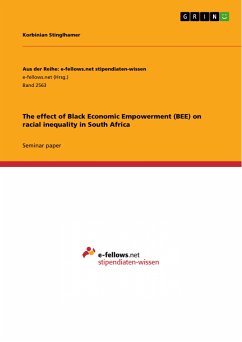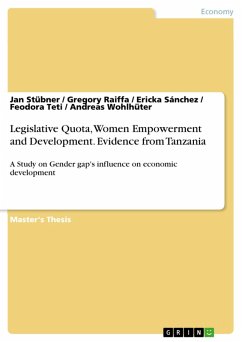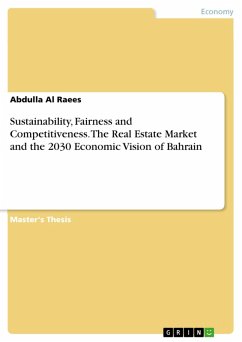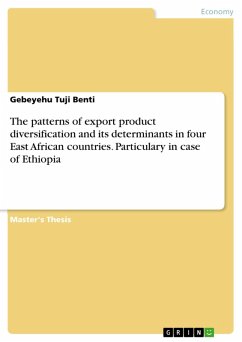Seminar paper from the year 2016 in the subject Economics - Case Scenarios, grade: 1,0, University of Wisconsin-Madison (Economics), course: Economics 477: Economic Development of Africa, language: English, abstract: This paper investigates the Black Economic Empowerment (BEE) program in South Africa and its economic justification by analyzing the trends in both, intra- and interracial inequality, since the implementation of BEE. Even though inequality is driven by many different factors, this paper attempts to analyze whether BEE was able to effectively reduce inequality in the way that it was intended. My findings suggest that BEE might have helped to reduce inequality between different races, but that it increased inequality among black people. During Apartheid, black people were excluded from major parts of South Africa's economy. This resulted in an unequal income distribution in South Africa. Even after Apartheid ended in 1994 income was distributed unequally between races. In order to reduce this inequality and equalize opportunities between the different races in South Africa, the government implemented an affirmative action program called Black Economic Empowerment (BEE) in 2003. In this case and in the following sections, the word "black" defines a racial group, including Africans, coloreds and Indians and can thus be used as synonym for "non-whites." BEE introduced a scorecard which rates companies based on their economic inclusion of black people. If the respective company receives a low rating on the scorecard, there will likely be a negative effect on their profit compared to a company with a high rating. The basic critique of BEE is that its main beneficiary is a small elite. Studies about the actual effects of BEE are rare, as data on this topic is limited.
Dieser Download kann aus rechtlichen Gründen nur mit Rechnungsadresse in A, B, BG, CY, CZ, D, DK, EW, E, FIN, F, GR, HR, H, IRL, I, LT, L, LR, M, NL, PL, P, R, S, SLO, SK ausgeliefert werden.









